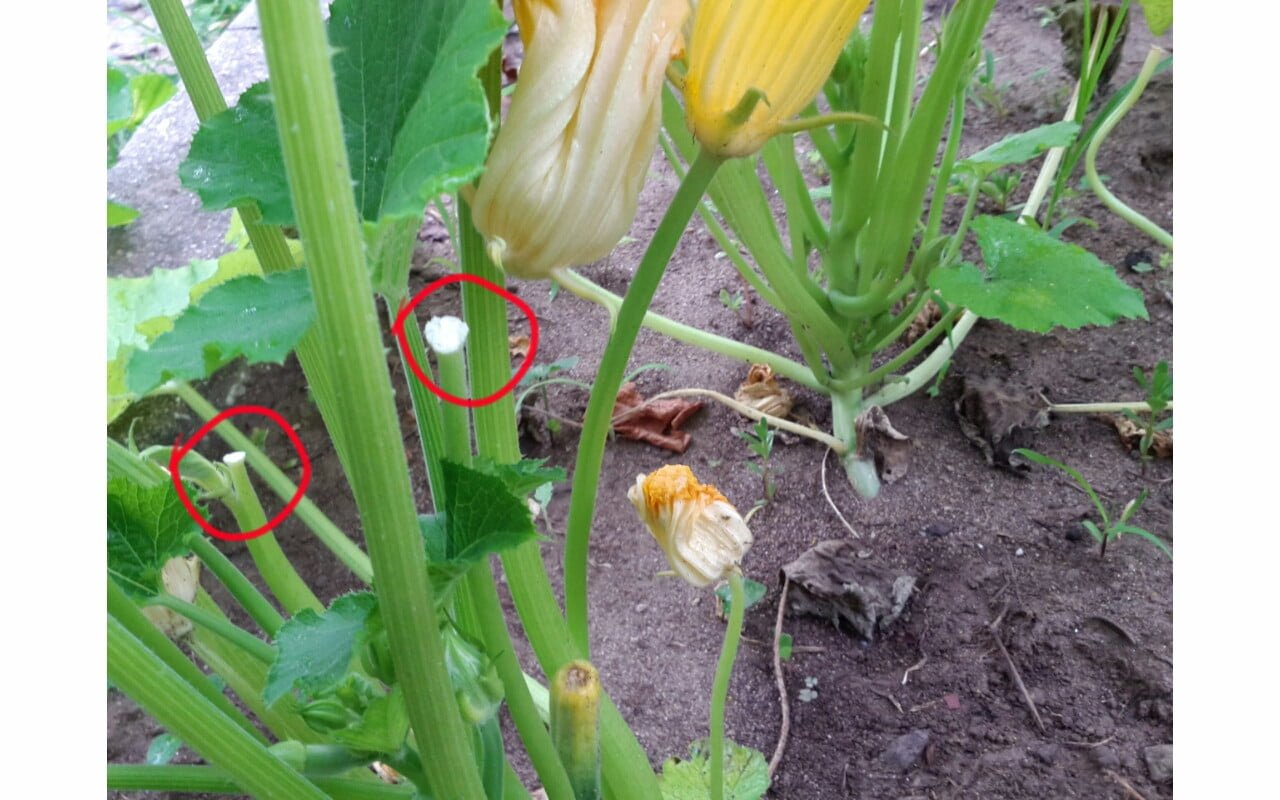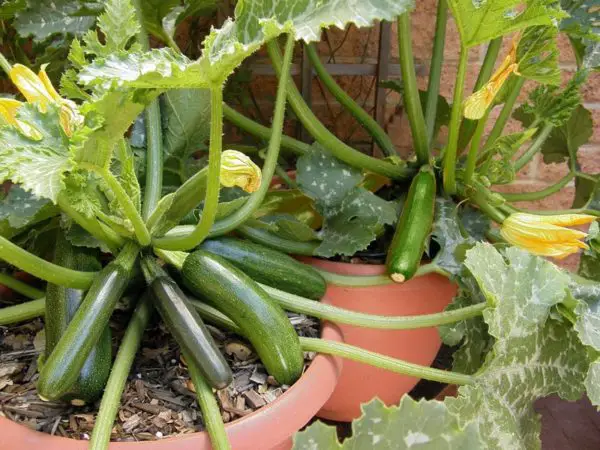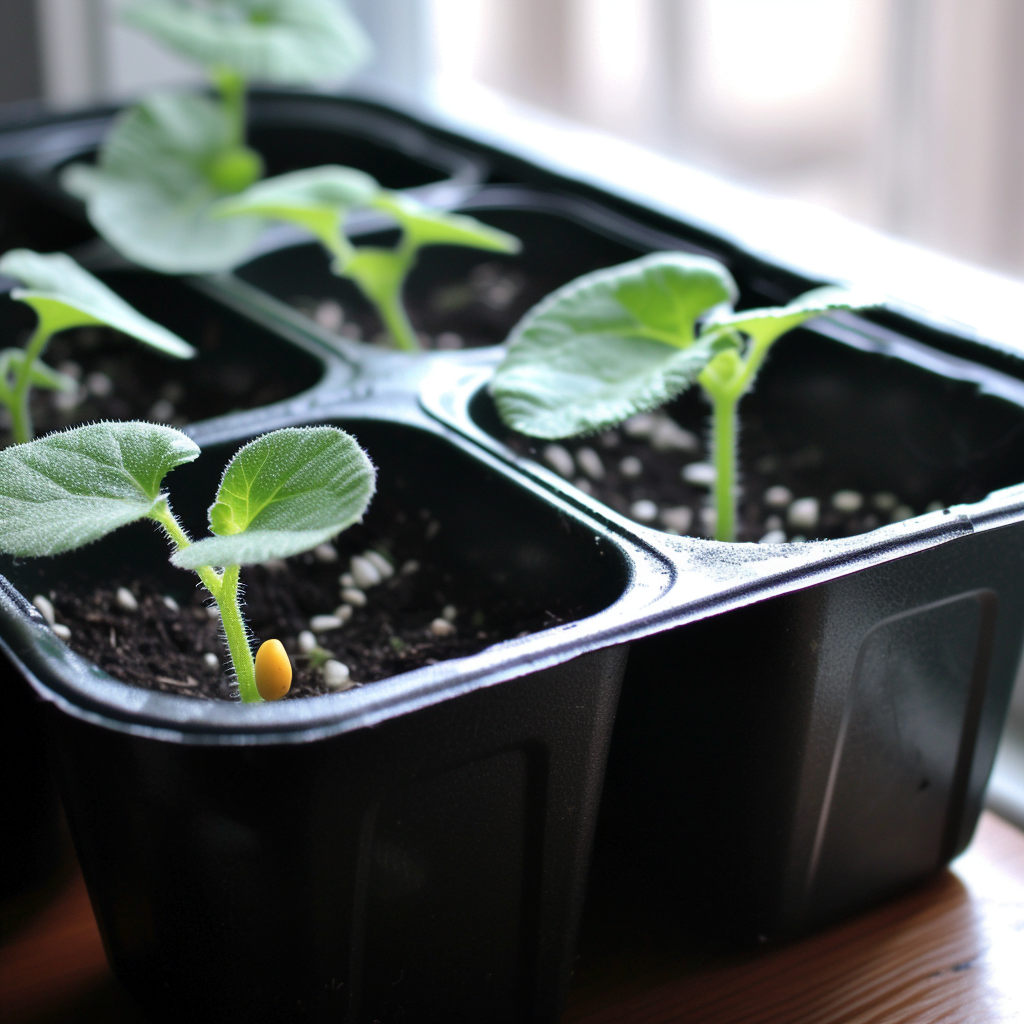Have you ever been excited to see your zucchini plants flourish, only to be puzzled and disappointed when the blossoms start falling off? You ask yourself in frustration “Why are my zucchini blossoms falling off?” If you’ve experienced this frustrating conundrum in your garden, you’re not alone. Zucchini blossoms falling off can be a common issue faced by gardeners, but understanding the underlying causes can help you find a solution and ensure a bountiful harvest. Let’s explore the possible reasons why your zucchini blossoms are falling off and what you can do to rectify the situation.
Insufficient pollination
Lack of pollinators
One possible reason for your zucchini blossoms falling off is the lack of pollinators. Zucchini plants rely on pollinators, such as bees and butterflies, to transfer pollen from the male flowers to the female flowers. Without proper pollination, the female flowers may not develop into fruit and instead, drop off. If you notice a lack of bees or other pollinators in your garden, you can try attracting them by planting flowers that are known to attract bees or providing them with a source of water.
Inadequate pollination techniques
Another reason for your zucchini blossoms falling off could be inadequate pollination techniques. Sometimes, the pollen from the male flowers may not be reaching the female flowers due to factors such as improper flower opening times or poor pollen transfer. To improve pollination, you can manually transfer pollen from the male flowers to the female flowers using a small brush or cotton swab. Gently brush the inside of the male flower to collect the pollen, then transfer it to the stigma in the center of the female flower. This can help ensure that the flowers are properly pollinated and increase the chances of fruit development.
Temperature and humidity factors
Extreme temperatures
Extreme temperatures can also play a role in causing zucchini blossoms to fall off. High temperatures, especially above 90°F (32°C), can cause stress on the plants and lead to blossom drop. Similarly, sudden drops in temperature, especially below 50°F (10°C), can also affect the flowers. To mitigate the impact of extreme temperatures, you can provide shade for your zucchini plants during hot weather or cover them with a row cover during cool nights. Maintaining a stable temperature range can help prevent excessive stress on the plants and promote better flower retention.
Inconsistent humidity levels
Inconsistent humidity levels can contribute to zucchini blossom drop as well. Dry air can cause the flowers to dry out and fall off prematurely. On the other hand, excessively high humidity can lead to poor pollination and the growth of fungal or bacterial diseases. To maintain adequate humidity levels, you can use a humidifier or mist the plants with water on hot and dry days. Additionally, ensuring proper air circulation around your zucchini plants can help prevent excessive humidity and reduce the risk of diseases.
Lack of nutrients
Imbalanced soil fertility
Imbalanced soil fertility can also be a factor in zucchini blossom drop. Zucchini plants require a balanced supply of nutrients, including nitrogen, phosphorus, and potassium, to support healthy growth and flower development. If the soil lacks these essential nutrients or has an imbalance in their proportions, it can negatively affect the plant’s ability to produce and retain blossoms. Testing your soil and amending it with organic fertilizers or compost can help ensure that your zucchini plants have the necessary nutrients for optimal flower production.
Inadequate fertilization
Furthermore, inadequate fertilization can contribute to zucchini blossom drop. If your zucchini plants are not receiving enough nutrients through regular fertilization, they may become nutrient deficient, which can cause plants to divert their limited resources away from the blossoms. To prevent this, it is important to follow a regular fertilization schedule and provide your zucchini plants with a balanced fertilizer specifically formulated for vegetables. This will supply the necessary nutrients and promote healthy flower development, increasing the chances of fruit set.
Pest and disease issues
Insect infestation
Pest infestations can lead to zucchini blossom drop as well. Insects such as aphids, squash bugs, or cucumber beetles can feed on the flowers and cause them to fall off prematurely. It is important to regularly inspect your plants for any signs of insect activity and take appropriate measures to control them. This can include using insecticidal soaps, organic insecticides, or employing natural pest control methods such as companion planting with insect-repellent plants.
Fungal or bacterial infections
Fungal or bacterial infections can also be responsible for zucchini blossom drop. Diseases like powdery mildew, downy mildew, or bacterial wilt can affect the flowers and cause them to wither and drop off. To prevent these diseases, it is crucial to maintain good garden hygiene by removing any infected plant debris and providing adequate spacing between plants for proper air circulation. Additionally, applying organic fungicides or bactericides, as recommended, can help protect your zucchini plants from these infections.
Overwatering or underwatering
Excessive watering
Overwatering can contribute to zucchini blossom drop. When plants are consistently overwatered, the roots may become suffocated and develop root rot, which can inhibit the plant’s ability to absorb nutrients and water properly. This can manifest in the flowers dropping off prematurely. It is important to monitor your zucchini plants’ watering needs and provide water only when the top few inches of soil are dry. Proper watering techniques, such as watering at the base of the plants and avoiding wetting the leaves, can help prevent overwatering and improve overall plant health.
Insufficient watering
Conversely, underwatering can also lead to zucchini blossom drop. Insufficient watering can cause stress on the plants and result in flower desiccation and drop. It is essential to provide your zucchini plants with enough water to keep the soil consistently moist, but not waterlogged. Mulching around the base of the plants can help retain moisture in the soil and reduce water evaporation. Regularly checking the soil moisture and adjusting your watering routine accordingly can help prevent underwatering and promote better flower retention.
Stress and environmental conditions
Transplant shock
Transplant shock can cause zucchini blossoms to fall off. When plants are transplanted from a nursery container to the garden, they may experience temporary stress as they adjust to their new surroundings. This stress can disrupt their growth and lead to blossom drop. To minimize transplant shock, it is important to handle the plants gently during transplanting and provide them with appropriate care, including regular watering and protection from extreme weather conditions. Giving your zucchini plants time to acclimate to their new environment can help reduce stress and increase their chances of retaining blossoms.
Excessive wind or rain
Excessive wind or rain can also contribute to zucchini blossom drop. Strong winds can damage the flowers and cause them to detach from the plant prematurely. Similarly, heavy rain can physically impact the flowers and result in their loss. Providing sufficient support, such as stakes or cages, for your zucchini plants can help protect them from wind damage. In case of heavy rain, providing some form of overhead cover, such as a garden tunnel or umbrellas, can help shield the flowers from the direct impact of the raindrops and prevent blossom drop.
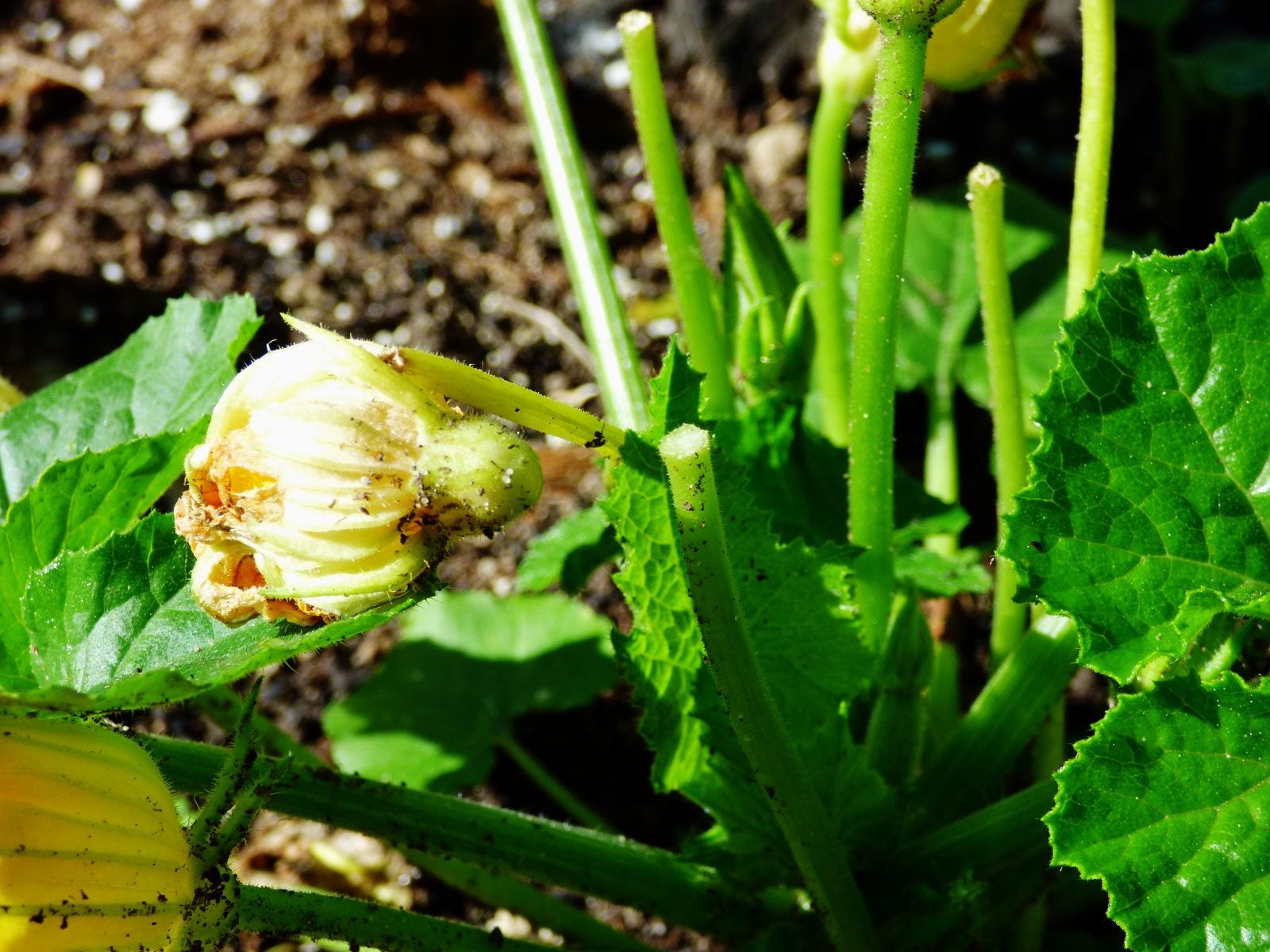
Genetic factors
Variety-specific traits
Certain zucchini varieties may exhibit a natural tendency for blossom drop. Some varieties may naturally produce a higher proportion of male flowers, resulting in a lower fruit set. Additionally, certain heirloom or open-pollinated varieties may be more susceptible to blossom drop compared to hybrid varieties known for better flower retention. If you consistently face issues with blossom drop, it might be worthwhile to try different zucchini varieties to find one that is better suited to your growing conditions and has a higher success rate of fruit set.
Inherent plant weakness
Some zucchini plants may have inherent weaknesses that make them more prone to blossom drop. These weaknesses can be related to the plant’s genetic traits or its overall health. If the plant is stressed or weakened due to factors such as improper care, pest infestations, or disease, it may exhibit higher rates of blossom drop. Providing optimal growing conditions, proper care, and addressing any underlying health issues can help mitigate inherent weaknesses and improve flower retention.
Overcrowding and competition
Limited space for each plant
Overcrowding can contribute to zucchini blossom drop. When plants are closely spaced, they may compete for resources such as sunlight, water, and nutrients. This competition can result in reduced flower production and increased blossom drop. To prevent overcrowding, it is essential to provide adequate spacing between your zucchini plants. This will ensure each plant has enough room to grow and access the necessary resources, leading to healthier plants with better flower retention.
Root competition
Root competition among zucchini plants can further exacerbate blossom drop. When the roots of neighboring plants are densely intertwined, they can compete for water and nutrients in the soil. This root competition can stress the plants and negatively impact flower development and retention. To minimize this, consider using raised beds or containers for growing your zucchini plants, as this can help create a defined space for each plant’s roots and limit competition. Additionally, regular weeding to remove competing plants or adjusting your planting layout can also help alleviate root competition and promote better flower retention.
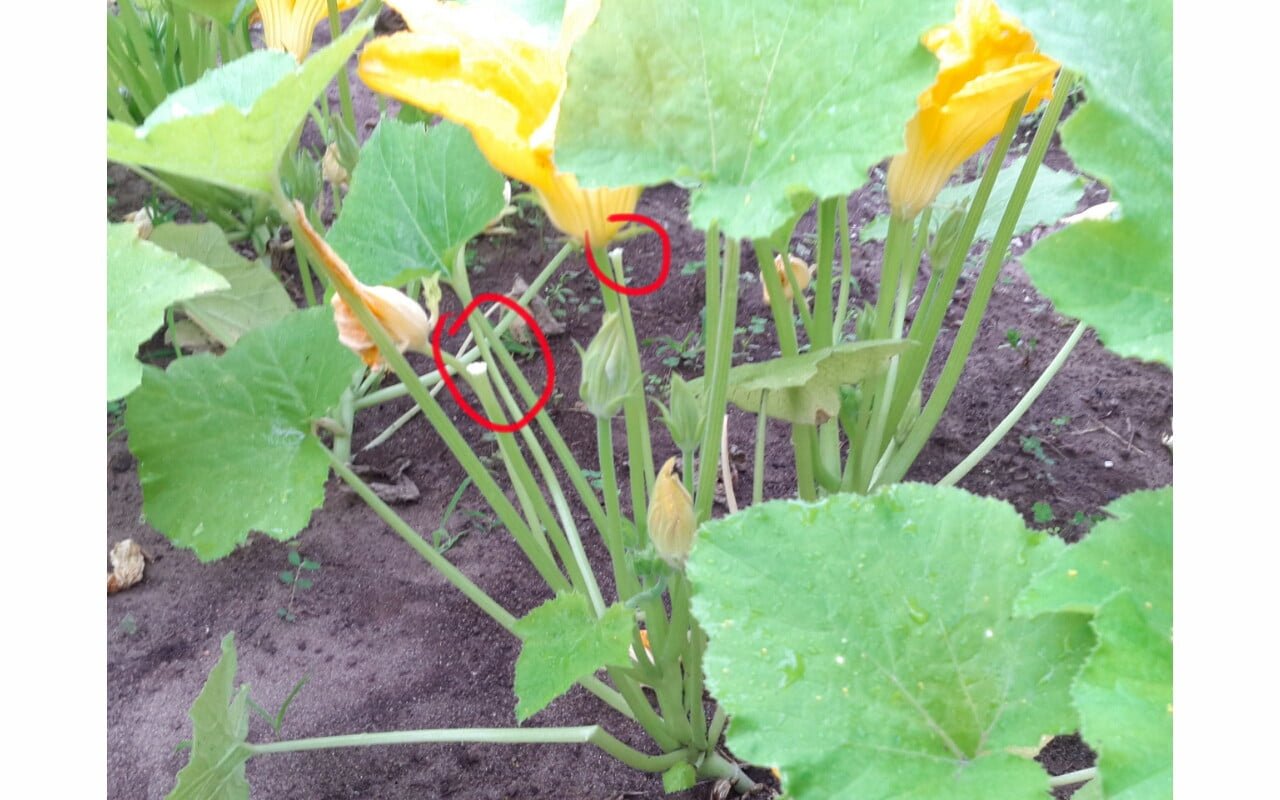
Improper pruning techniques
Damage to the blossoms
Improper pruning techniques can result in zucchini blossom drop. When pruning, it is important to be mindful of the flowers and avoid causing any damage. Accidentally removing or damaging the blossoms during pruning can hinder fruit development and lead to their premature drop-off. When pruning your zucchini plants, take care to selectively remove only the necessary parts, such as removing dead or diseased leaves or excessive growth. Pruning at the proper times and using clean, sharp tools can help minimize damage to the flowers and improve overall plant health.
Inadequate air circulation
Inadequate air circulation resulting from improper pruning practices can also contribute to zucchini blossom drop. When the foliage is densely packed, air cannot flow freely among the leaves and flowers, creating a favorable environment for diseases to develop. Lack of airflow can increase the chances of fungal or bacterial infections, leading to flower withering and drop-off. Pruning your zucchini plants to promote better air circulation can help minimize disease risks and improve flower retention. This can involve selectively removing some leaves or branches to create space and allow air to move more freely through the plants.
Conclusion
The issue of zucchini blossoms falling off can be attributed to various factors such as insufficient pollination, temperature and humidity conditions, lack of nutrients, pest and disease problems, improper watering, stress, genetic factors, overcrowding, and improper pruning techniques. By addressing these factors and providing optimal growing conditions for your zucchini plants, you can increase the chances of retaining blossoms and enjoying a bountiful harvest. Remember to assess each factor carefully and make necessary adjustments to ensure that your zucchini plants thrive and produce a plentiful yield of fruits. Happy gardening!
